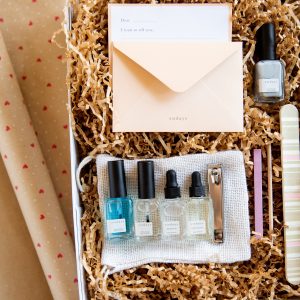As a Registered Dietitian with a Master’s Degree in Nutrition Communications and a Bachelor’s Degree in Psychology, Maddie has a passion for cutting through the myths of the diet industry and helping individuals find their optimal, personalized health plan. She has also worked in the fields of PR, social media, and event production for several years and helps grow brands to maximize their potential. She loves all things fitness, wellness, and cooking, and is often testing recipes in her kitchen, traveling, or staying active with friends in Brooklyn.
What are some common misconceptions about wellness?
One of the biggest misconceptions in the nutrition world, and something I constantly provide education around in my practice and in day-to-day life, surround nutrition advice from brands and folks without credentials on social media. The misconception is that every product and “hack” you hear about from one person will work for you, too – but it goes beyond this and can seep into dangerous territory when folks take advice and start incorporating products that have zero scientific merits or can even be harmful.
To provide an example, if I had a dollar for every time someone asked me if a greens powder would improve their digestion or “repair their gut lining”… you get the idea. And there’s no shame in asking these questions – you absolutely should be curious and cautious. That’s exactly what registered dietitians are here for, and why you should always work with someone who has this credential when you are seeking personalized nutrition advice. Anyone can sell a product online – and anyone can call themself a nutritionist – but RDs go through years and years of training in a clinical setting to be able to parse what’s real from what’s just diet culture or marketing. And this isn’t to say that you can’t adjust, experiment a bit, and see what works best for you – but if a product sounds too good to be true, it is.
What does wellness mean to you?
I often avoid answering this question due to its breadth (there are infinite great answers here), but for me, it’s always important to talk about some of the pitfalls of wellness, as I think that can be overlooked. Wellness today has unfortunately become very tied to affluence – and because of that, wellness culture can feel very exclusive, cliquey, and elitist. For this reason, wellness to me is inherently political, but not always synonymous with actual health. Wellness is largely something the individual must be able to access and prioritize – which is often very difficult due to the many structural barriers to wellness. Wellness has become a privilege that unfortunately many cannot access, and if we want to improve wellness on a more universal level, it starts with dismantling these systems.
On a more individual level though, I also think it’s important to note that one person’s definition of wellness may not, and should not, match another’s. Wellness practices have been around for millennia, and encompass so much more than just the latest lifestyle, nutrition, or fitness trends. To me, wellness is a daily practice of choice – choosing, and having the privilege to choose, what I do, who I interact with, the brands I support and buy from, the activities I engage in, what I eat, how much I sleep, how much I work, how I balance my hobbies outside of work, and so much more. There is no one singular activity, product, or “hack” to make you well.
What are some of your favorite tips or tricks from your wellness ritual? Did you learn anything new or interesting recently?
A few specific things that I’m trying to do more often include: setting boundaries (work-life boundaries, interpersonal boundaries, etc.); speaking up; silencing my phone (and especially the email/social media apps on my phone, even for just an hour at a time); being strategic with my caffeine intake; prioritizing spending time with my friends and family; minimizing things that interfere with my sleep; and working on ways to lower stress levels. On the nutrition front, especially as the weather gets warmer, I always look forward to incorporating more fresh, seasonal fruits and veggies into my diet and exploring new recipes. It’s when I feel the most inspired by food and when I try to be my most creative in the kitchen.
What advice would you give your younger self about wellness?
Prioritize adding, rather than subtracting – don’t sweat the small stuff or worry about the latest fads. It all passes.



